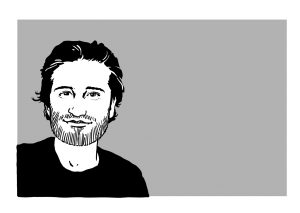Julius Murke is one of the founding members of Young Leaders for Health (YLH), an organisation composed of 24 students and young professionals that aims to build a platform providing education, research and advocacy in global health. For him, worldwide health improvement, the reduction of disparities, and protection against trans-border global threats are among the most pressing issues in a globalised world and challenge our common approach towards dealing with global health and global public goods.
TGP: What was the starting point and cause for founding YLH?
The starting point for the Young Leaders for Health was the Charité Berlin – the large teaching hospital which is affiliated with Humboldt Universität and Freie Universität. Through the involvement of some students of the Charité with various activities related to public health and globalisation such as the World Health Summit, their interest in global health increased . While discussing these topics we realised two things: firstly, global health is a crosscutting, inter-sectoral and interdisciplinary issue that gains special relevance because of globalisation. Secondly, we realised that this topic is unjustly neglected in Germany.
We founded YLH in December of 2014 in order to not only reflect on the relevance of global health and the gap in German politics from a purely intellectual stance, but to actually take an active part in bringing global health on the agenda. Our broader aim is to provide a network that acts as a platform for the exchange of knowledge and to educate young people in the field of global health. Our first step was to organise a conference where we simulated the World Health Assembly, which was motivated by our ambition to be action-driven and get young people engaged.
TGP: How do you define global health?
Global health is both an aim and a discipline. As an aim, it is concerned with providing health for all. Therefore, the quest for equity and social justice lie at the heart of global health. As a discipline, global health deals with health issues which are shaped by transnational determinants and applies a trans-disciplinary approach that transcends the different sectors of governance and society. For the issues at stake, the rationale is not so much to focus on development assistance for a single country but rather on the management of externalities and the provision of global public goods.
TGP: Why is global health not a relevant issue in Germany?
Actually, the German government would probably see itself as one of the champions in dealing with global health. If you look at the numbers for international assistance for health, Germany is one of the major donors. However, I don’t think global health should be measured by the amount of money spent. Addressing transnational health issues requires undertaking an approach that incorporates several dimensions. For example, supporting an international convention on the control of sugary intake is not measured in numbers of official development assistance, but would have far reaching impacts.
The reason why the topic is not relevant in Germany is twofold: Firstly, international relations as a discipline is not big in Germany. I think this has to do with the heritage of World War II: Germany was lacking legitimacy to remain a major player in international security and global affairs. Secondly, the public health sector in general in Germany does not receive a lot of attention. You should not mistake the big health care system with the public health sector. Public health prevents diseases. Health care cures them.
TGP: What structure do we need to provide global public goods?
The basic structures are already in place. However, the regulations too often lack stringency or are not used to their fullest extent. For example, the World Health Organisation (WHO) has normative law-making competencies but they do not really exhaust their capabilities. The WHO can pass internationally binding laws, but this has only been done in the cases of international health regulations and tobacco control. Furthermore the WHO just as the whole UN system is largely underfunded. Precisely, it has the budget of a common German hospital. But addressing global determinants demands global institutions that are capable of acting.
TGP: What are the most relevant activities of YLH in this field and to put global health on the agenda?
We have three areas of work: education, research and advocacy. YLH wants to be an organisation that finds solutions and aims for change. We realised, however, that this is quite a high aim. This is why we are currently focused on education. It is at this point the most feasible way to get our voices heard and shape the narrative on certain issues, although we still work in parallel on research and advocacy.
While developing our initiative, we added a fourth category: innovation. Within this area we have currently two main projects. We will hold an entrepreneur challenge this April and we are offering a design thinking lab on health in the Sustainable Development Goals (SDGs) at our conference in August 2017.
TGP: Where do you see YLH in the future?
Our next step is to offer solutions on policies as well as on the product level. On the one hand, we want to become an integral part of the German global health landscape. On the other hand, we also want to scale up our solution-finding work to the most pressing global health issues such as antimicrobial resistance or universal health coverage.
TGP: There are elections coming up this summer in Germany. What are your hopes for change?
We need more policy coherence! One should not just look at the assistance a country is giving. National and international policies, regardless of the sector concerned, can largely influence global health (e.g. a country’s trade agreements), thus highlighting the need to further integrate transnational health considerations into the policy process.
Intellectual property is such a topic that needs to be set on the agenda. Right now the existing incentive structure is not aligned with public health needs. Research efforts do not focus on the most important diseases and the prices for pharmaceuticals resulting from this system are so high that even high-income countries can no longer afford them. I don’t mean to say that property rights in general should be abandoned. But it is important for policy makers to keep in mind what incentives they create.
TGP: Lastly, how can interested young people become part of YLH?
If you want to see us in action you should apply for the Young Leaders for Health Conference 2017, taking place from 17-20 August in Berlin. This year’s topic will be ‘Health in the SDGs’. We will hold a Simulation of the World Health Assembly accompanied with a comprehensive workshop program and a design thinking lab.
In general, we are always happy about interested people that want to join our mission for global health! At the moment we are especially looking for web-design support and help in regards for policy development but we are generally open for everyone who is interested. To get in contact you can just visit our website or write us an email.
 Having graduated as a medical doctor from the Charité Berlin in 2016, Julius Murke additionally studied economics and interned at the Heal Africa Hospital in Goma, Democratic Republic of Congo. Since 2013 he is a member of the Young German Council on Foreign Relations and he started working with the German Development Cooperation in January 2017. To him, the inter-disciplinarity and comprehensiveness that characterise global health are further proof of its necessity to address 21st century challenges.
Having graduated as a medical doctor from the Charité Berlin in 2016, Julius Murke additionally studied economics and interned at the Heal Africa Hospital in Goma, Democratic Republic of Congo. Since 2013 he is a member of the Young German Council on Foreign Relations and he started working with the German Development Cooperation in January 2017. To him, the inter-disciplinarity and comprehensiveness that characterise global health are further proof of its necessity to address 21st century challenges.
 Johanna Buchholz is a class of 2018 Master of Public Policy candidate. She studied “Philosophy & Economics” in Bayreuth and Stellenbosch where she focused on ethics, social justice and microeconomics. For the last year she was working in a consultancy of the public sector, specialised on the labour market and labour market institutions in Germany. Her interests lie in social policy and organisational change (management).
Johanna Buchholz is a class of 2018 Master of Public Policy candidate. She studied “Philosophy & Economics” in Bayreuth and Stellenbosch where she focused on ethics, social justice and microeconomics. For the last year she was working in a consultancy of the public sector, specialised on the labour market and labour market institutions in Germany. Her interests lie in social policy and organisational change (management).
